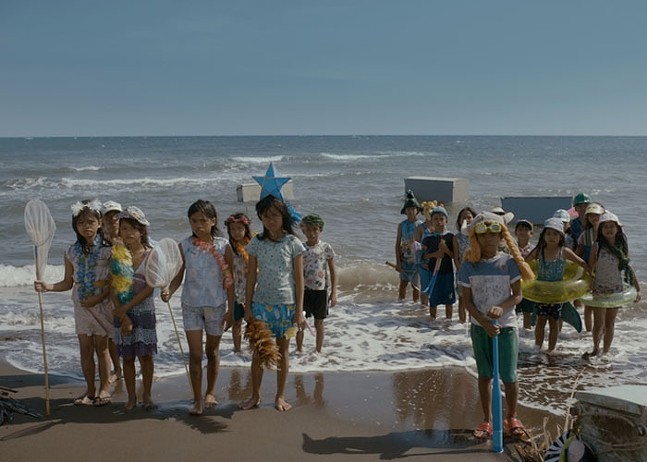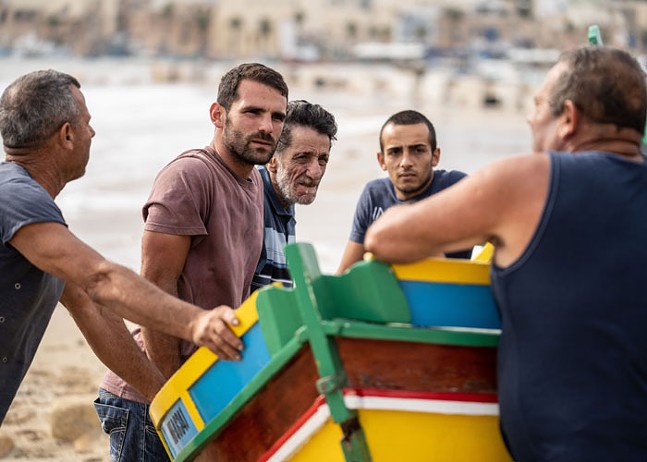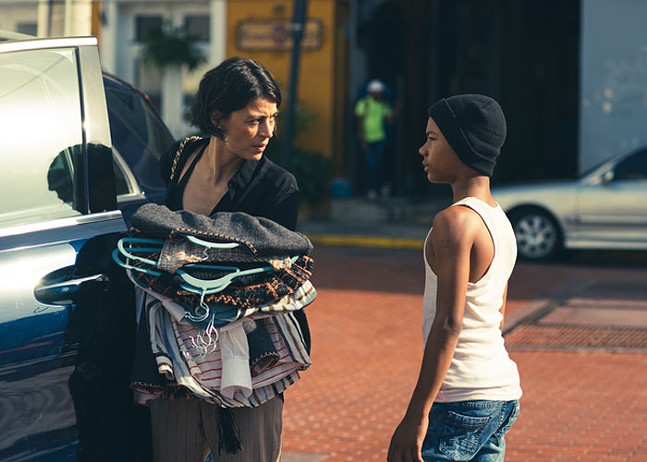Running from Thu., March 24 through Sat., April 9, CMU IFF will screen 13 films representing around 17 countries, including through co-productions. Under the theme "Faces Behind the Mask," the festival seeks to “explore the realities” figurative masks conceal, “the facades they represent, and ways we bear them.”
The festival will take place at CMU, as well as at the Harris Theater in Downtown Pittsburgh, and at Carlow University.
Festival organizer Jolanta Lion says she believes people will be “hungry” for these kinds of events after the pandemic confined so many film screenings to the digital realm. CMU IFF, which was founded in 2006, had to move online last year, with screenings being spread out over the year as opposed to a multi-week run.
However, being online meant missing many of the culturally immersive aspects that made the festival so distinct. For example, Lion points out how CMU will host a live dance performance for the opening night film Casablanca Beats, a 2021 narrative feature about Moroccan youth using rap and hip hop to challenge their culture’s restrictive societal norms.
Lion adds that there will also be food catered by local restaurants whose national cuisine fits certain films, moderated talks from directors, and more.
“So each event, it's not just a film screening,” says Lion.
Lion, who organized the festival with interns including Cindy Lu and Regis Curtis, says that while they were able to bring the festival back to in-person, narrowing down the films presented another challenge, especially when many films go from the major festival circuit straight to streaming services, even before seeing a theatrical run.
“It's really such a hard market because the world distributors are taking the films from festivals, and I'm just also in the middle of that because I want to have the Pittsburgh premiere,” says Lion, “or to know that the film will not be screened on Netflix or other platforms.”
Even so, Lion says she was able to procure some big titles, including Plaza Cathedral, a Panamanian drama shortlisted for the Academy Awards this year, and Ahed’s Knee, a film that has generated buzz for its criticism of the Israeli government, mainly its treatment of Palestinians.
Other films showing include the Chinese films Ascension and Ripples of Life, the Indian film Pebbles, and Leave No Traces, the Polish entry for the Best International Feature Film at the Academy Awards. Also on the schedule is the Maltese drama Luzzu and Whether the Weather is Fine, a tragi-comic Filipino film about the human toll of climate change.
Lu, a CMU student who serves as an Asian Component Coordinator for the festival, says the theme also questions “what are people hiding just to adapt or conform to the social norms,” and how the filmmakers challenge the status quo, not only in terms of content but in terms of artistic style. She cites the 2021 documentary Trenches as an example, saying that the selected film, which follows French journalist Loup Bureau, who spent months on the ground with Ukrainian soldiers as they fought Russian-backed separatists, provides a more “microscopic” view of daily life for soldiers on the frontline of what would become a catastrophic war.
In line with this are moderated discussions from the filmmakers and from experts who Lion says will “give the audience that chance to fully reflect on issues.” For example, the screening for Devil’s Drivers, a documentary that, over the course of five years, follows the dangers faced by Palestinians being smuggled into Israel for work, will include a panel discussion featuring CMU and Pitt professors and March Fichman, who serves as chair of J Street Pittsburgh, the local chapter of a political action committee to resolve the Israeli-Palestinian conflict.

Curtis, a Pitt student, says he and other students, including a design major from LaRoche, had a major stake in the festival, from choosing films to coordinating sponsors and moderators.
“Our opinions do matter and it makes it a very unique environment and atmosphere to work in because everyone is doing something that feels fulfilling and feels impactful which is really rare I think among undergraduates and graduate students who are doing internships,” says Curtis.
After months of preparation, Curtis says he looks forward to seeing how audiences react to the festival.
“We have just so many different avenues and perspectives on what it looks like to be alive and to keep moving forward that it's honestly kind of incredible,” he says. “I'd never expected to have so many different things happening at the same time coming together as one cohesive piece. We did it somehow, and I can't wait for it to happen and to let people see all that over the next few weeks.”
Carnegie Mellon University International Film Festival. Thu., March 24-Sat., April 9. Various locations. $5-15, $10-15 opening night only, $25-50 festival pass. Open to the public. cmu.edu/faces




















